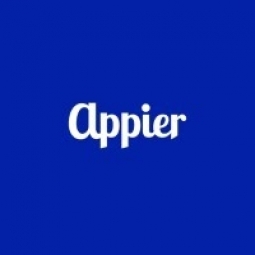Technology Category
- Analytics & Modeling - Big Data Analytics
- Platform as a Service (PaaS) - Application Development Platforms
Applicable Industries
- Cement
- Finance & Insurance
Applicable Functions
- Maintenance
- Sales & Marketing
Use Cases
- Chatbots
- Usage-Based Insurance
Services
- Data Science Services
- System Integration
About The Customer
Shin Kong Life Insurance is a well-established insurance company based in Taiwan. Founded in 1963, the company has over 60 years of history and has been actively expanding its business globally. In 2017, Shin Kong Life Insurance was the first in the industry to adopt FinTech and AI technologies for big data analysis and prediction. The company has over 9 million policyholders and maintains a strong user community. It is committed to being the most trusted partner for its policyholders and continuously strives to increase its sales success rates and ensure precise customer acquisition.
The Challenge
Shin Kong Life Insurance, a Taiwan-based company with over 60 years of history, was looking to leverage FinTech and AI technologies to enhance its big data analysis and prediction capabilities. The company aimed to build comprehensive customer profiles, target high-potential customers, improve advertising effectiveness, provide personalized interactive marketing, and deeply engage with its user communities to increase brand stickiness. The challenge was to effectively integrate AI technologies into their existing systems and processes to achieve these goals. The company also wanted to expand its customer base and increase sales success rates while ensuring precise customer acquisition.
The Solution
Shin Kong Life Insurance partnered with Appier to implement an AI big data marketing strategy. They used AIXON’s Intelligent User Profile, powered by AI and deep learning technologies, to extract de-identified customer characteristics for probabilistic matching. These characteristics were then merged with Shin Kong Life’s existing customer data to create holistic customer profiles. The company also used AIXON’s AI-predicted keywords and interests to find similar audiences and expand its potential customer pool. In the second phase, Shin Kong Life leveraged AIXON to predict customers’ potential interests and topics, and used Appier’s AIQUA AI personalization cloud to deliver effective and informative messages to activate dormant customers. The company also used AIQUA to detect different behaviors from onsite visitors and trigger personalized interactions. In the third phase, Shin Kong Life launched LIFE Lab, a consultation platform with a wide range of interaction points, and placed BotBonnie entry points (chatbots) on its official website and social media platforms to expand opportunities for engagement with its customers.
Operational Impact
Quantitative Benefit

Case Study missing?
Start adding your own!
Register with your work email and create a new case study profile for your business.
Related Case Studies.

Case Study
System 800xA at Indian Cement Plants
Chettinad Cement recognized that further efficiencies could be achieved in its cement manufacturing process. It looked to investing in comprehensive operational and control technologies to manage and derive productivity and energy efficiency gains from the assets on Line 2, their second plant in India.

Case Study
Real-time In-vehicle Monitoring
The telematic solution provides this vital premium-adjusting information. The solution also helps detect and deter vehicle or trailer theft – as soon as a theft occurs, monitoring personnel can alert the appropriate authorities, providing an exact location.“With more and more insurance companies and major fleet operators interested in monitoring driver behaviour on the grounds of road safety, efficient logistics and costs, the market for this type of device and associated e-business services is growing rapidly within Italy and the rest of Europe,” says Franco.“The insurance companies are especially interested in the pay-per-use and pay-as-you-drive applications while other organisations employ the technology for road user charging.”“One million vehicles in Italy currently carry such devices and forecasts indicate that the European market will increase tenfold by 2014.However, for our technology to work effectively, we needed a highly reliable wireless data network to carry the information between the vehicles and monitoring stations.”

Case Study
Safety First with Folksam
The competitiveness of the car insurance market is driving UBI growth as a means for insurance companies to differentiate their customer propositions as well as improving operational efficiency. An insurance model - usage-based insurance ("UBI") - offers possibilities for insurers to do more efficient market segmentation and accurate risk assessment and pricing. Insurers require an IoT solution for the purpose of data collection and performance analysis

Case Study
Smooth Transition to Energy Savings
The building was equipped with four end-of-life Trane water cooled chillers, located in the basement. Johnson Controls installed four York water cooled centrifugal chillers with unit mounted variable speed drives and a total installed cooling capacity of 6,8 MW. Each chiller has a capacity of 1,6 MW (variable to 1.9MW depending upon condenser water temperatures). Johnson Controls needed to design the equipment in such way that it would fit the dimensional constraints of the existing plant area and plant access route but also the specific performance requirements of the client. Morgan Stanley required the chiller plant to match the building load profile, turn down to match the low load requirement when needed and provide an improvement in the Energy Efficiency Ratio across the entire operating range. Other requirements were a reduction in the chiller noise level to improve the working environment in the plant room and a wide operating envelope coupled with intelligent controls to allow possible variation in both flow rate and temperature. The latter was needed to leverage increased capacity from a reduced number of machines during the different installation phases and allow future enhancement to a variable primary flow system.

Case Study
Automated Pallet Labeling Solution for SPR Packaging
SPR Packaging, an American supplier of packaging solutions, was in search of an automated pallet labeling solution that could meet their immediate and future needs. They aimed to equip their lines with automatic printer applicators, but also required a solution that could interface with their accounting software. The challenge was to find a system that could read a 2D code on pallets at the stretch wrapper, track the pallet, and flag any pallets with unread barcodes for inspection. The pallets could be single or double stacked, and the system needed to be able to differentiate between the two. SPR Packaging sought a system integrator with extensive experience in advanced printing and tracking solutions to provide a complete traceability system.

Case Study
Transforming insurance pricing while improving driver safety
The Internet of Things (IoT) is revolutionizing the car insurance industry on a scale not seen since the introduction of the car itself. For decades, premiums have been calculated using proxy-based risk assessment models and historical data. Today, a growing number of innovative companies such as Quebec-based Industrielle Alliance are moving to usage-based insurance (UBI) models, driven by the advancement of telematics technologies and smart tracking devices.







